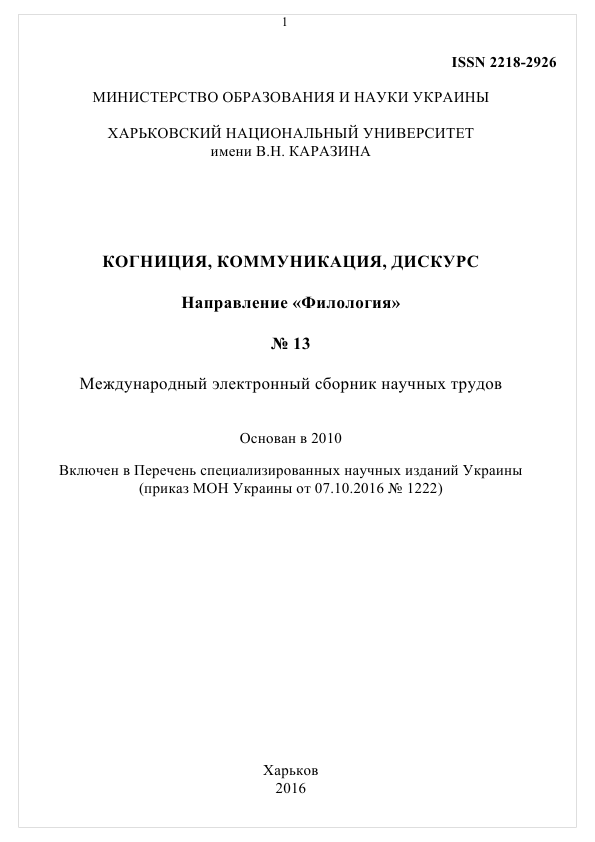A quest for democracy or for a conservative social ideal? A cognitive semantics perspective on the role of Sharia concepts in the discourse of the Egyptian Arab Spring.
Abstract
This paper analyzes the discourse of the Egyptian Arab Spring from a linguistic anthropology and cognitive semantics perspective aiming to uncover a native view on the Egyptian revolution of January 25, 2011. I focus on three salient concepts of the revolutionary discourse: ẒULM (injustice, oppression, wrong), QIṢĀṢ (retaliation), and FULŪL (a newly coined moniker for the enemies of the REVOLUTION). These concepts are interwoven with belief systems that shape Arab sociopolitical reality. The new Egyptians concept of REVOLUTION differs from its antecedents as modern electronic media has turned the January 25 revolution into a multimodal communication event. The discourse of the Egyptian Arab Spring appears to be far more conservative than the Western account of the revolution suggests and its key ideas have mostly been lost in translation provided by Western media.
Downloads
Authors, who publish with this journal, accept the following conditions:
The authors reserve the copyright of their work and transfer to the journal the right of the first publication of this work under the terms of the Creative Commons Attribution License (CC BY), which allows other persons to freely distribute a published work with mandatory reference to the authors of the original work and the first publication of the work in this journal.
Authors have the right to enter into separate additional agreements for the non-exclusive dissemination of the work in the form in which it was published by this journal (for example, to post the work in the electronic institutions' repository or to publish as part of a monograph), provided that the link to the first publication of the work in this journal is given.
The journal policy allows and encourages the authors to place the manuscripts on the Internet (for example, in the institutions' repositories or on personal websites), both before the presentation of this manuscript to the editorial board and during review procedure, as it contributes to the creation of productive scientific discussion and positively affects the efficiency and dynamics of citing the published work (see The Effect of Open Access).




